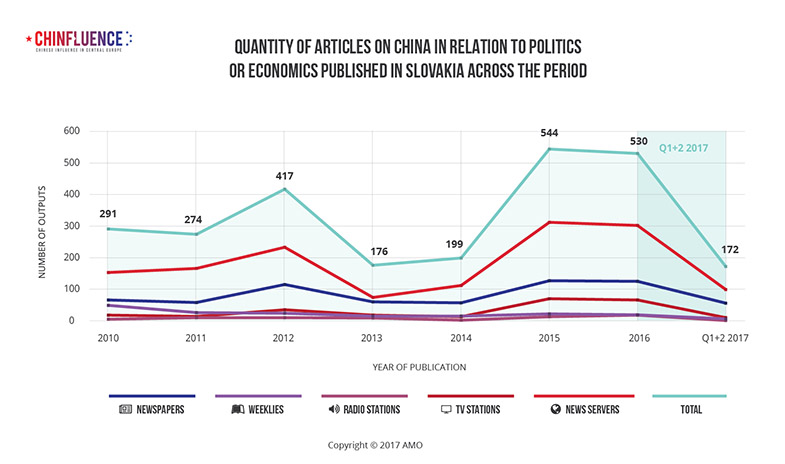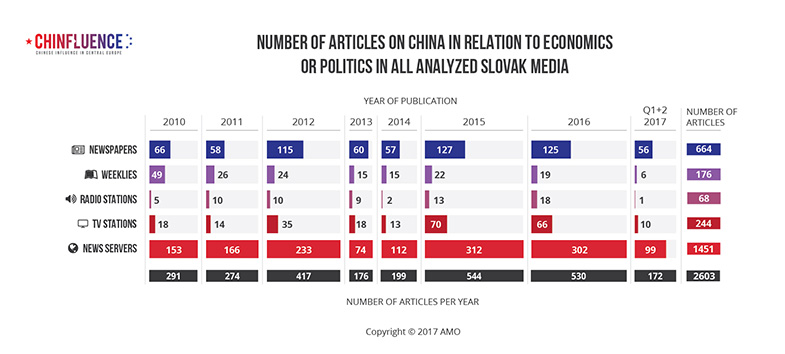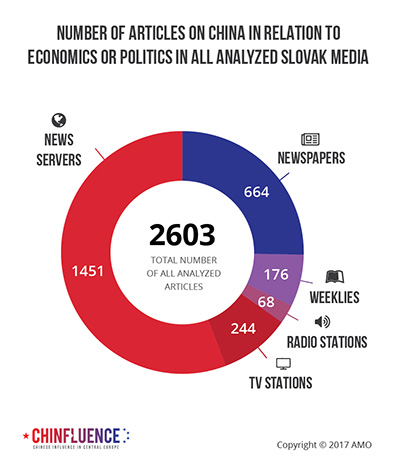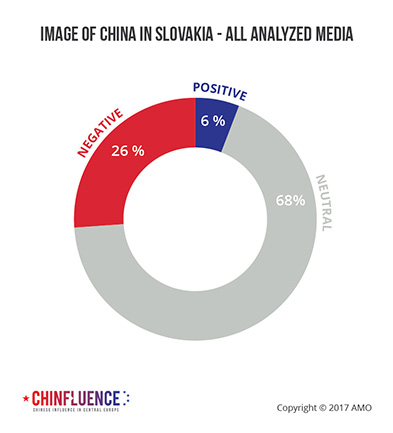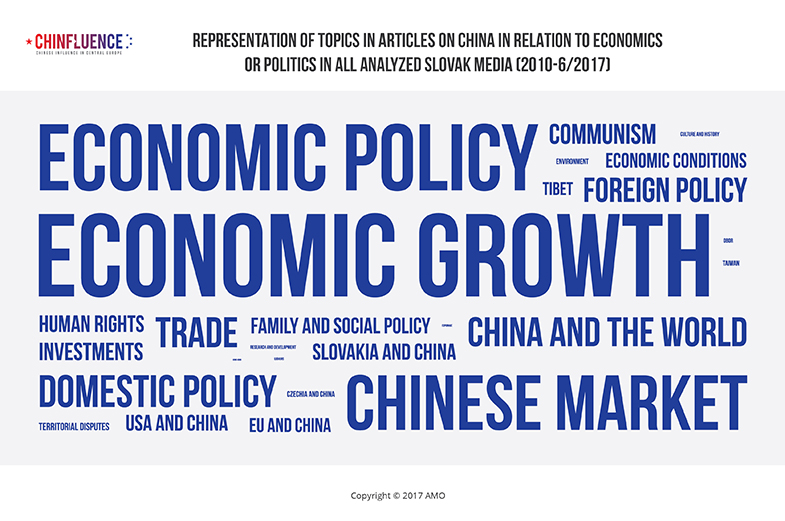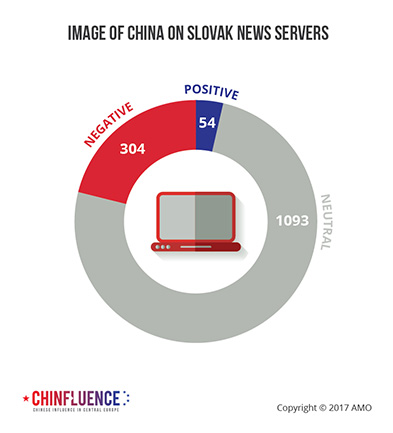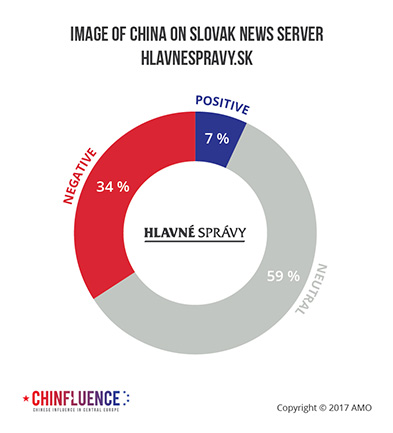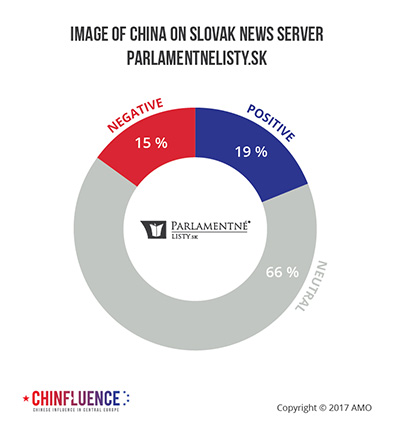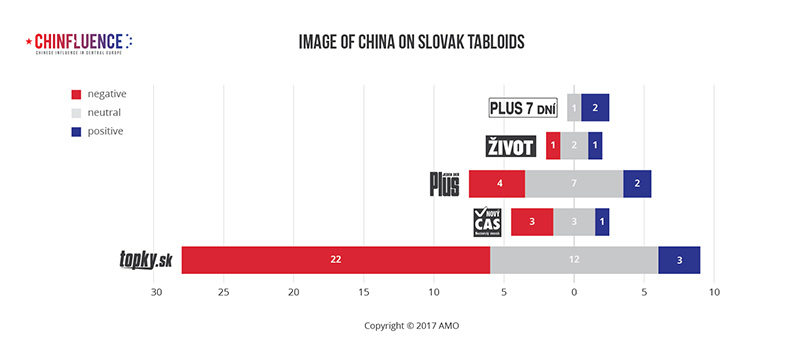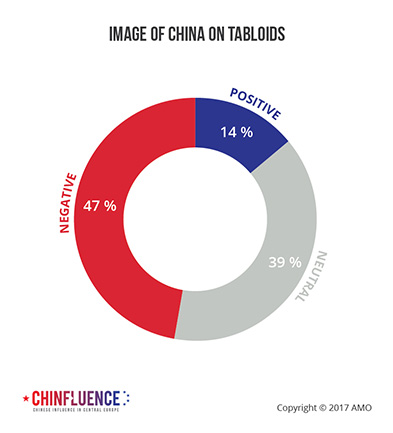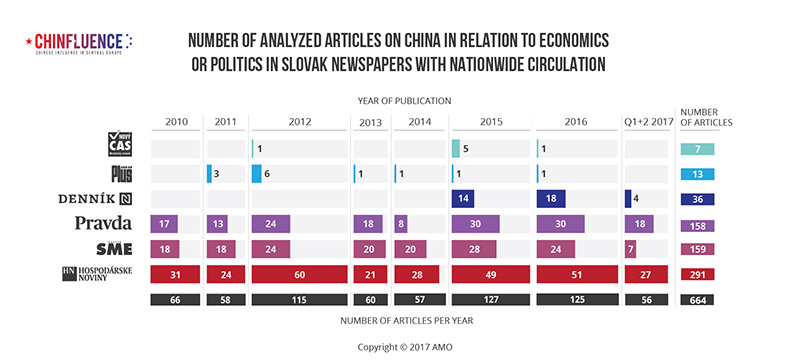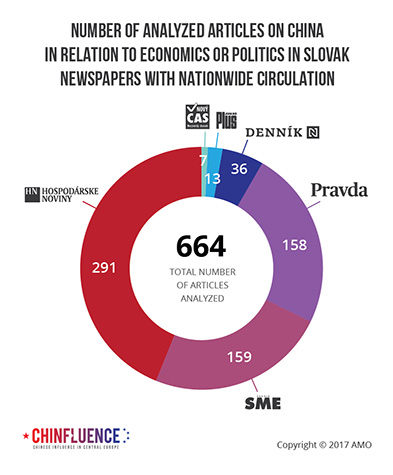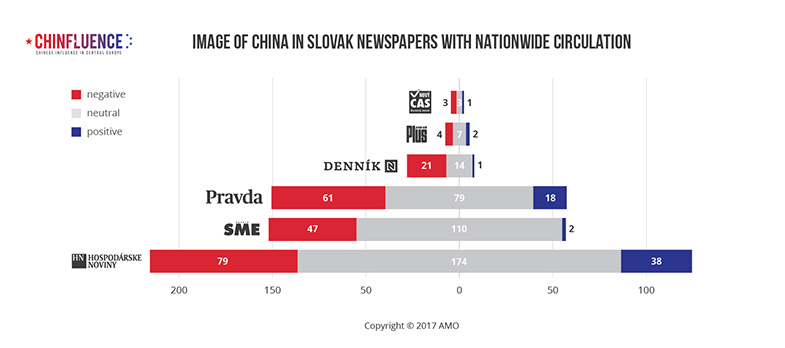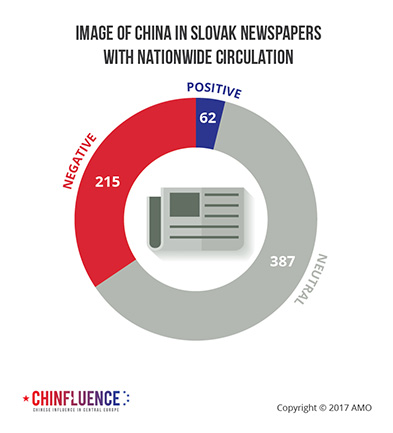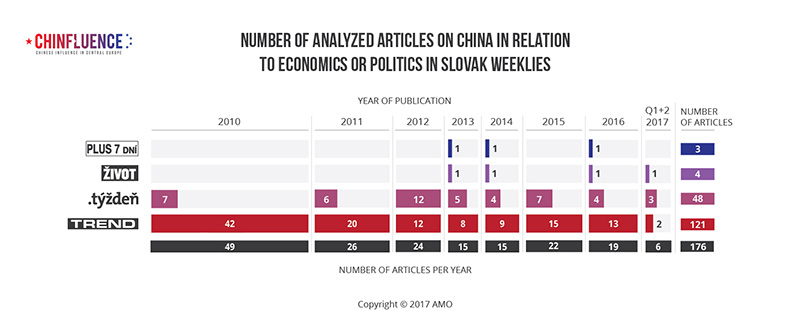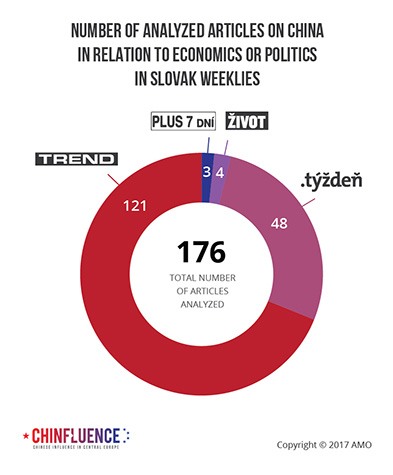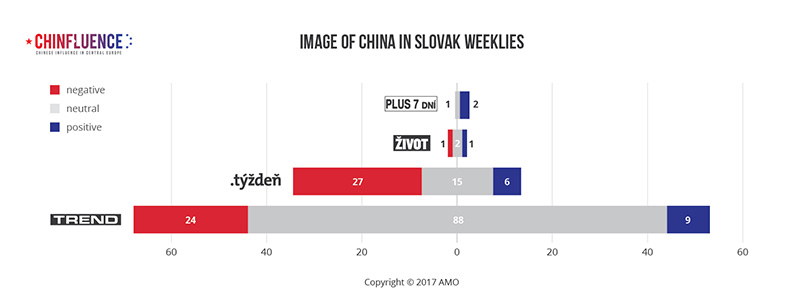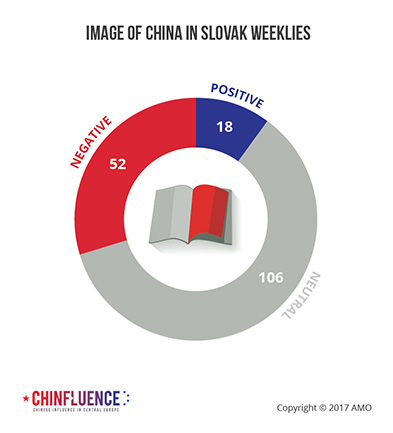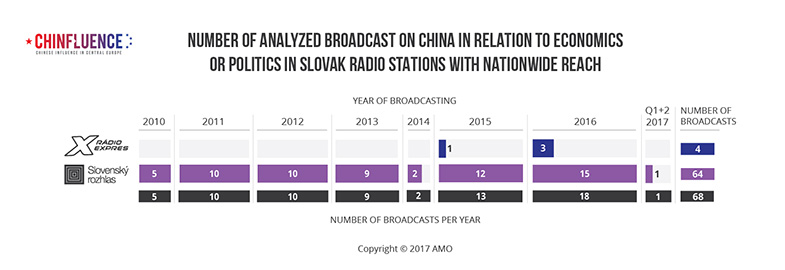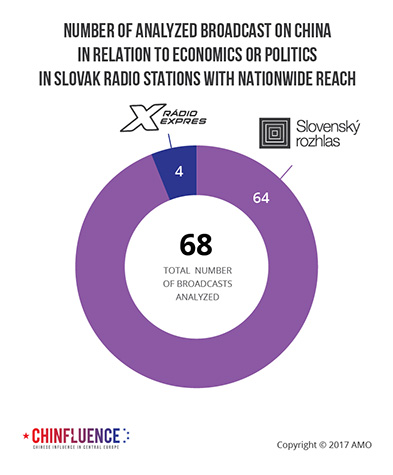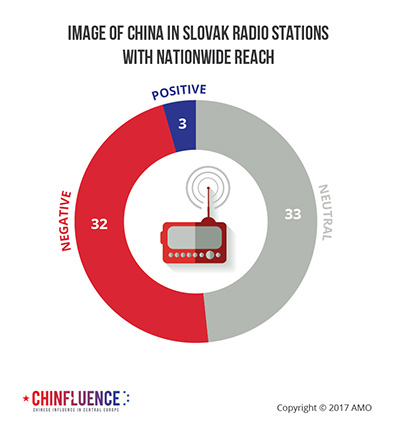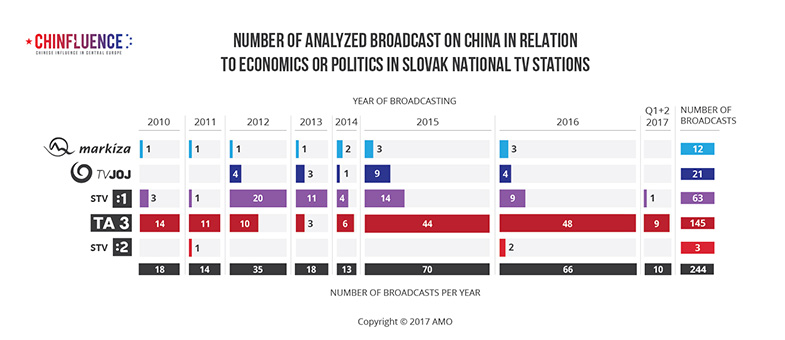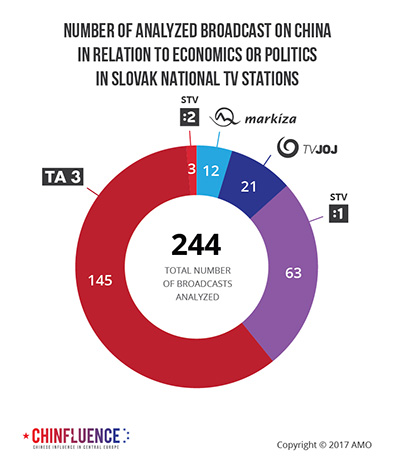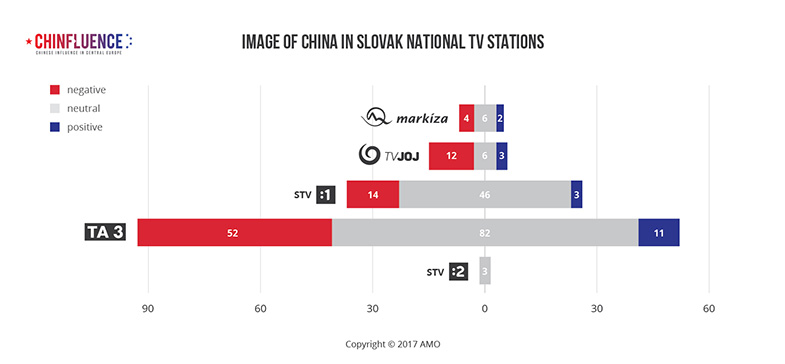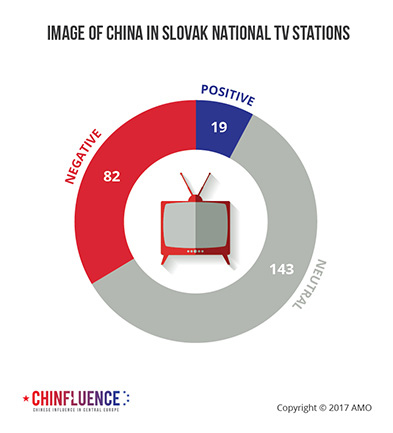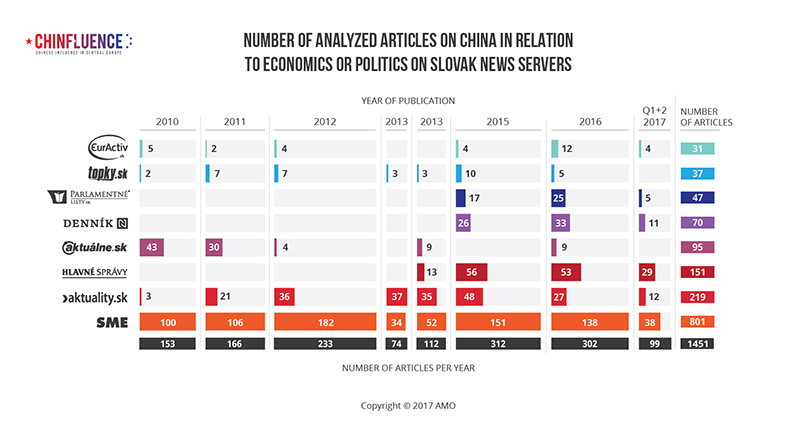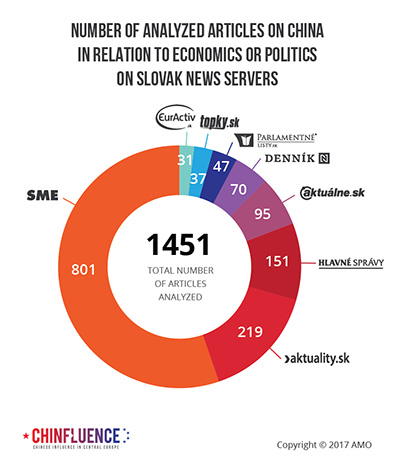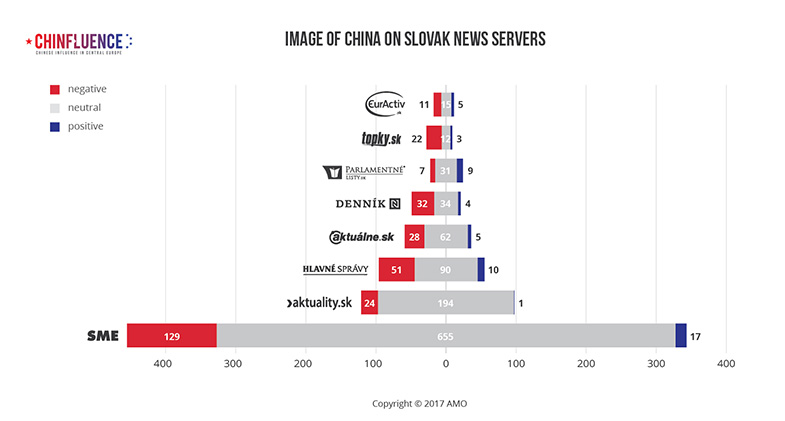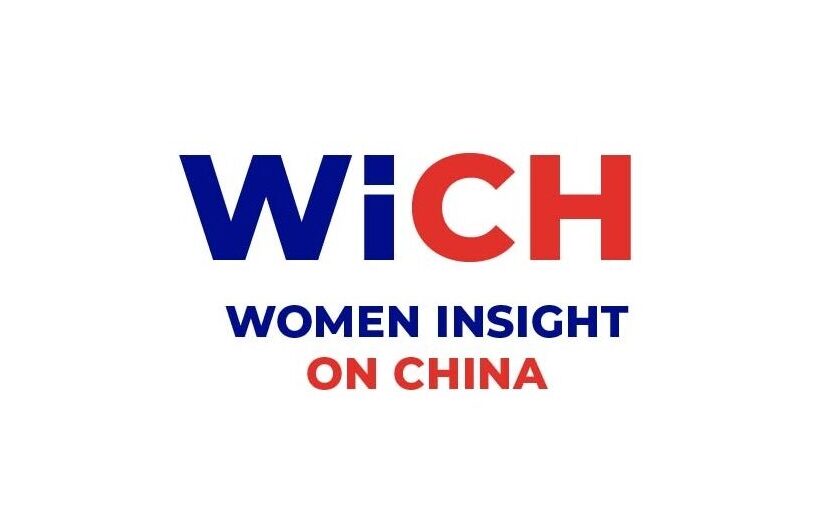Slovak Media Analysis (2010-2017)

We analyzed 2603 texts published by the Slovak media dealing with Chinese politics and/or the economy in the period since the beginning of 2010 until the end of June 2017. We selected 25 different media based on their popularity rates. Dailies, weeklies, radio and TV stations as well as online media were included. We examined both public and private media, as well as mainstream, tabloid, and alternative media.
For the results of the analysis, please check the following infographics.
There is no consistent trend when it comes to the amount of published articles per year. Within the examined timeframe, we observed three moments in which the number of media outputs on Chinese economy or politics was markedly higher compared to other years. The first peak occurred in 2012, the second and third in 2015-2016. The first half of 2017 seems to suggest a decrease in this number. The intensification of mutual Sino-Slovak relations did not contribute to the increase in coverage of China in Slovakia.
In 2012, internal affairs of the Chinese Communist Party were the primary driver of the increased volume of China coverage by the analyzed Slovak media. This included the change in Chinese leadership as well as the Bo X ilai corruption scandal. In 2015, the heightened output volume was caused by the volatility and crash of the Shanghai Stock Exchange. Both cases were connected mostly to the Chinese domestic affairs. In this regard, the increased volume in 2016 is an exception, as the Dalai Lama visited Slovakia and met with President Kiska. The visit appears to be the dominant reason behind the increased media coverage of China-related affairs in 2016, since the coverage of Sino-Slovak relations in the discussed period was five times higher compared to previous years.
Despite the fact that the Dalai Lama’s visit of Slovakia significantly contributed to the second highest amount of articles published within the period in vogue, the topic of relations between Slovakia and China remains only marginally covered. Slovak media are much more interested in Chinese economy as a whole rather than its connection to Slovakia. It is evidenced by as many as six economy-related topics being present among the top ten topics most frequently covered issues in the debate on China. In particular, the topic of China’s economic growth and its slowing down was the most discussed topic every year since 2010.
Unlike in the Czech case, economic topics prevailed in the media coverage over domestic and foreign policy related topics. In this respect Slovak media discourse focus is similar to Hungarian one. The Chinese economy was discussed 1.7 times more often than Chinese foreign policy, and 2.1 times more often than Chinese domestic politics and policies. Among the top five topics covered by the media, only a single topic was not related to the economy but rather to domestic policy. Security related topics are seriously underrepresented in the media discourse. The reason for the thematic imbalance in the media coverage is connected with the composition of the agenda setters involved in the media debate, where economists have a dominant position in Slovak media discourse. Moreover, most of the Slovak media reporting on China comes from the international agencies. Interestingly, Slovak media covered very rarely the bilateral Slovak-China relations.
When discussing China, the Slovak media put forth a neutral representation of China in majority of their articles. As many as 68 percent of articles were evaluated as neutral. Next, approximately one-quarter of articles framed China negatively, and only six percent of articles spread positive views of China.
It is quite noteworthy that the discourse on China present in alternative media did not differ from the average. Online portals Hlavne spravy and Parlamentne listy published on average 61 percent of neutral, 29 percent of negative, and less than 10 percent of positive articles. However, after a closer look at the articles’ m akeup, it is clear that while Hlavne spravy published mostly neutral articles, with negative ones taking the second place, Parlamentne listy were more positive on China, publishing 19 percent of them (compared to 6 percent in case of Hlavne spravy). Parlamentne list published only 15 percent of articles which sent a negative image of China, compared to 34 percent of negative articles in Hlavne spravy.
Having more than 75 percent of neutral articles, the group of online media also diverged from the overall average. It might be attributed to 2 media outlets – portals Sme.sk and Aktuality.sk – which represented 2/3 of the examined articles in this group. Both news portals had a share of neutral articles higher than 80 percent.
Tabloids talked about China in a very different manner compared to the rest of the media. Tabloids are the only group in which the share of negative articles is higher than the percentage of neutral pieces. While 39 percent of articles published by tabloids were neutral, as many as 47 percent were negative. However, the tabloids also published more than double the share of positive articles than the rest of the media.
The picture of China put forth by the Slovak media is very different from the Czech discourse. Unlike in Slovakia, neutral articles do not constitute a majority in the Czech media. Based on the analysis of Czech media, the share of neutral and negative articles in the Czech discourse on China is almost identical – 41 percent show China negatively a nd 45 percent of articles are neutral. It is quite interesting that despite the higher share of negative articles, the overall percentage of positive articles is higher than in Slovakia – 14 percents of articles f rame China positively (compared to only 6 percent in Slovakia). It can be assumed that Czech discourse of China is rather polarized (having more negative but also more positive articles than in Slovakia), while Slovak discourse is mostly neutral.
The Slovak media discourse predominantly focus on topics relating to the Chinese economy and economic policy. They not only dominate the discussion but in case of essential events influencing the Chinese economy they also drive the growth in media coverage volume. P olitical topics, including the bilateral Sino-Slovak relations, receive comparatively less attention by Slovak media.
A domination of a single topic cluster in the media discourse contributes to the skewing of the public debate, which in turn lacks key questions on Slovakia’s bilateral relations with China. To illustrate, over the course of seven years, bilateral Slovak-Chinese ties received less attention in Slovak media than Chinese banking sector.
It can be seen positively that the Slovak media discourse (unlike the Czech one) is not overly polarized. Even though the share of negative articles is higher than that of the positive articles, the discourse is clearly dominated by neutral pieces. Only the tabloids differ in this regard, but their share on the overall volume of all articles discussing either Chinese economy or Chinese politics is less than 2.5 percent of the total volume.
The role of political and economic elites is dissected in the section on the analysis of actors.
